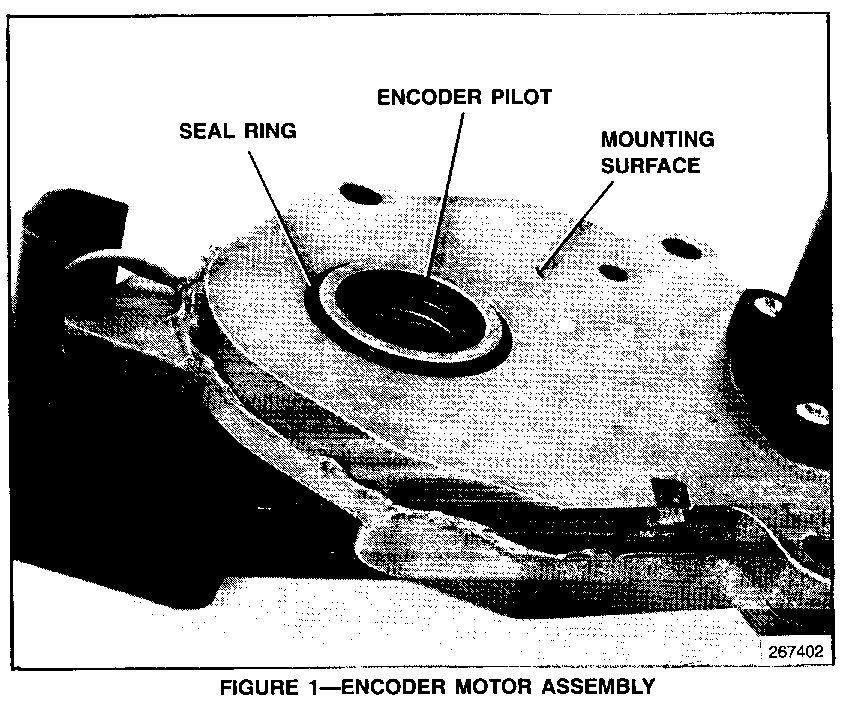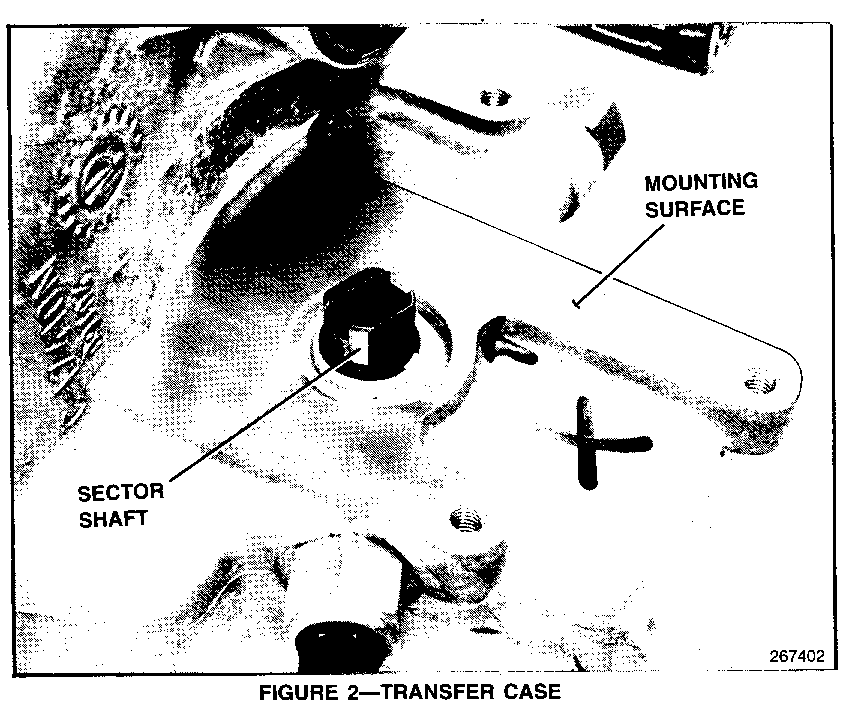ELECT SHIFT ENCODER REPLACEMENT (INFORMATIONAL)

SUBJECT: ELECTRICAL SHIFT ENCODER REPLACEMENT
MODEL and YEAR: 1992-93 T TRUCK
When replacing the Transfer case encoder assembly (P/N 15636696) on 1992 and 1993 electric shift transfer cases (New Process 233), the correct service procedures must be followed. Failure to install the encoder motor assembly correctly may result in contamination and corrosion of the encoder and its electrical components.
It is very important that the mounting surfaces be clean and free of debris. The sealing O-ring must be correctly in place on the encoder pilot to ensure a positive seal (Figure 1).
SERVICE PROCEDURE
To remove the encoder motor assembly:
1. Disconnect the negative battery cable.
2. Raise the vehicle and support with suitable safety stands.
3. Disconnect the electrical connection to the transfer case encoder.
4. Remove the front propeller shaft.
5. Remove the front output shaft yoke, section 7D, Figure 12 in the 1992 S-10 Truck Service Manual.
6. Remove the encoder motor assembly by removing the (3) 8mm hex bolts.
NOTE: REMOVE ONLY THE 8mm HEX NUTS AS SEVERE DAMAGE TO INTERNAL COMPONENTS OF THE ENCODER MOTOR ASSEMBLY MAY RESULT IF THE TORX HEAD BOLTS ARE REMOVED. DO NOT REMOVE THE TORX HEAD BOLTS.
To install the encoder motor assembly:
1. All mounting surfaces must be clean and free from burrs and debris (Figure 1 and 2).
2. Set the sealing 0-ring on the encoder motor pilot (Figure 1).
Note: Check the alignment of the transfer case sector shaft with the drive sleeve in the encoder motor assembly. The transfer case should be in 4-High (The flats on the sector shaft vertical) for proper alignment. Rotate the transfer case sector shaft for proper alignment if required.
3. Install the encoder motor assembly. Torque the bolts to 18 N.m (13 lbs.ft.).
4. Install the front output shaft yoke as outlined in section 7D-13 of the 1992 or 1993 S-10 Truck Service Manual (TRANSFER CASE OUTPUT SHAFT SEAL REPLACEMENT).
5. Install the front propeller shaft, refer to section 4A (PROPELLER SHAFT) in the 1992 or 1993 S-10 Truck Service Manual.
6. Connect the encoder motor electrical connection.
7. Connect the negative battery cable. Lower the vehicle.
WARRANTY INFORMATION
For vehicles repaired under warranty use:
Labor Operation: K4124
Use applicable labor time guide for labor hours.


General Motors bulletins are intended for use by professional technicians, not a "do-it-yourselfer". They are written to inform those technicians of conditions that may occur on some vehicles, or to provide information that could assist in the proper service of a vehicle. Properly trained technicians have the equipment, tools, safety instructions and know-how to do a job properly and safely. If a condition is described, do not assume that the bulletin applies to your vehicle, or that your vehicle will have that condition. See a General Motors dealer servicing your brand of General Motors vehicle for information on whether your vehicle may benefit from the information.
